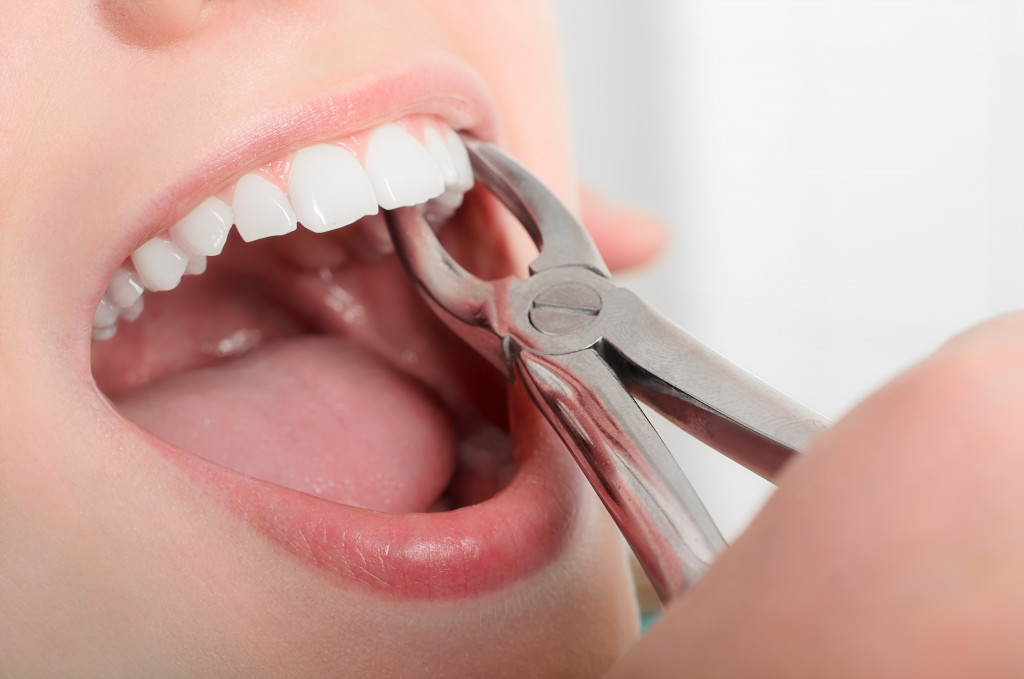Having a tooth extracted can be an intimidating and frightening experience. Whether your extraction is due to decay, infection, or overcrowding in the mouth, it’s essential to be prepared for what may come next. Here are five tips for managing a tooth extraction that can help you through this process.
1. Be Knowledgeable
Before getting your tooth extracted, it’s essential to understand exactly what the procedure will involve. Ask your dentist questions about the extraction and ensure you clearly understand the risks and benefits associated with the extraction. Knowing what to expect can help reduce anxiety surrounding the procedure.
Additionally, taking the time to research tooth extraction can help you better prepare for it. Start by familiarizing yourself with the types of extractions and which type is likely to be done in your case. You should also become informed about potential complications that could occur during or after the extraction and how best to mitigate them. Additionally, research the recovery process and any possible discomfort you may experience.
It is also essential to understand which type of anesthetic your dentist will use for the extraction. Most extractions are done using local anesthesia, but your dentist may opt for general anesthesia if a complicated or impacted tooth needs to be extracted.
2. Follow Pre-Extraction Instructions
Before extraction, your dentist may provide instructions that should be followed carefully. These could include avoiding certain foods prior to the procedure or taking medications in advance. Adhering to these instructions is essential to prevent complications during the extraction process.
Additionally, on the day of your extraction, get plenty of rest and arrive on time for your appointment. If you are nervous or anxious about the procedure, communicate this to your dentist before it begins. They can provide strategies to help make the process more comfortable for you.
Having someone to drive you home after the extraction is also essential. You may feel sedated or drowsy from the medications used during the procedure, making driving challenging. Your dentist may provide a post-extraction care plan outlining what activities should be avoided and instructions for cleaning the extraction site to help promote healing.
3. Use Pain Relief Medication

After your tooth is extracted, you may experience some pain and discomfort. It’s important to follow your dentist’s recommendations for medication to manage the pain. Depending on the extraction type, you may be prescribed a short-term or long-term pain relief medication.
It is important to take pain relief medication as prescribed and closely follow your dentist’s instructions. Do not take more than the recommended dosage, and do not take it for longer than prescribed. Commonly prescribed pain medications include ibuprofen, paracetamol, or codeine-based drugs such as co-codamol. Always read the patient information leaflet and follow the instructions, including any warnings.
If you experience side effects or an allergic reaction while taking a medication, such as rash or itching, stop using it and contact your doctor immediately. It is also essential to take regular doses of pain relief medication to keep the pain under control; do not wait until the pain is severe before taking the medication.
4. Practice Good Oral Hygiene
Once the tooth has been extracted, practicing good oral hygiene is essential to prevent infection and aid healing. This includes brushing with a soft-bristled toothbrush two to three times per day for at least two minutes, flossing gently around the extraction site, and using an antibiotic mouthwash as recommended by your dentist.
Eating a balanced diet low in sugar and refined carbohydrates is also essential, as these can lead to cavities and gum disease. Drinking plenty of water throughout the day can help flush harmful bacteria from your mouth.
You should also avoid smoking or chewing tobacco products, including cigarettes and cigars, as this will delay healing. Drinking alcohol in moderation can also help with healing. Still, it is essential to check with your dentist before drinking any alcohol as it may interact with certain medications you are taking.
5. Get implants
Implants are a great way to enhance your appearance and improve oral health. They are small metal posts surgically implanted into the jawbone and then topped with a prosthetic crown or bridge. Implants allow for a secure fit of dentures, bridges, and crowns without needing adhesive materials.
The good news is that you don’t have to wait months for implants—same-day teeth implants are available. This procedure uses advanced techniques to place the implant post in just one visit. The process starts with a thorough examination, imaging, and planning with the implant specialist. Then, the post is placed in just a few hours, and you can start using your new implants as soon as possible.
Thanks to same-day implants, you no longer have to wait for three to six months to heal. Implants can provide superior stability than other restorative methods and are a permanent solution for many dental issues. They also don’t require special care or maintenance, so you can enjoy the benefits of implants without worrying about them.
In Summary
Managing a tooth extraction is not always easy, but following the five tips above can help make the process easier and more successful. Follow your dentist’s instructions for medications, oral hygiene, and activity restrictions to promote healing and reduce pain. Tooth extractions can result in a healthier mouth and a beautiful new smile when done correctly.




